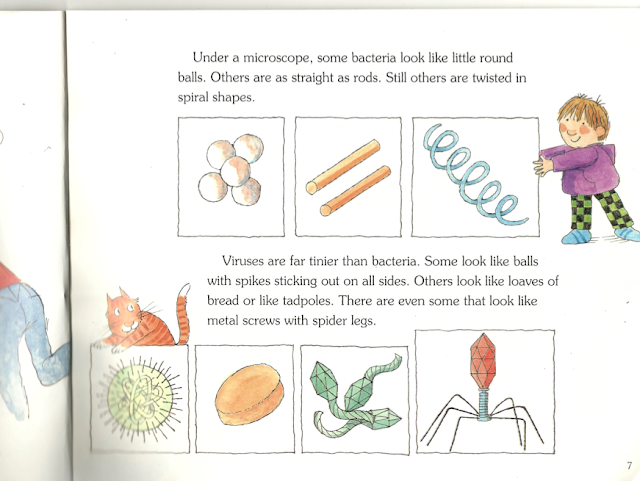Week 3 - Inquiry
10:01 PM
During our discussions of morality in children’s media, we
observed how there is a common belief that children are born either good or
evil. They are either the victims of the original sin, and therefore need to be
corrected, or they are perfect, celestial beings and can do no sin. During our
discussion of inquiry, on the other hand, we discovered that another opinion is
that children are born completely neutral. John Locke stated that children are
blank slates that need to be informed. The more knowledge they accumulate, the
more human they become.
The clip we viewed from Mr. Rogers’ Neighborhood was my
favorite viewing this week. I remembered watching the “How to Make Crayons”
segment when I was a little kid, and I was so surprised that I recalled it so clearly.
This clip was a good example of inquiry in children’s media, because it was
purely informational and educational. As someone mentioned in class, the
difference between this and the didactic moral tales is that this video just
informs how crayons are made, not teaching children to use this knowledge for
good or evil.
We viewed Chang
(1927) in class, and it fit with this inquiry topic well. Inquiry tends to be
documentary-ish in nature, because it is pertaining to teaching. Chang was a really interesting film that
informed what life was like at the time in the jungle of Siam, but it wasn’t
purely informational like the Seahorse film. It was a narrative about a family,
and their means of surviving in the jungle amidst wild animals. In this
respect, it was similar to the lemming clip we viewed, though Chang didn’t feel as manipulative or
subjective. While the film was educational as to worldly knowledge, I felt that
it combined moral values as well. It showed the importance of family,
community, and love. Inquiry can be strictly to teach, but I feel that it can
also have moral worth as well, and Chang
was a good example of that balance.
During our discussions, a book I read as a kid called “Germs
Make Me Sick” by Melvin Berger came to mind.
The entire book has a purpose of teaching kids
about bacteria and viruses, and how they make us sick. I always enjoyed books
that taught new things that were so foreign to me.
At the very end of the book it teaches kids how to not get
sick, and how to live a healthier lifestyle. In this respect, the book also has
morals to it. It encourages children to take the things they’ve learned and
apply them for good. Like “How to Make Crayons,” this book is informative and
educational. Like Chang, this book
takes practical knowledge and encourages good morals and actions to come as a
result.
I agree with Locke’s views that knowledge is acquired by
degrees. Knowledge is all we take with us into the next life, so it is
incredibly important to gain as much as we can. I believe that this type of
media is essential to children’s development, and adult development as well. It
is never too late to learn something, and media is a wonderful tool.













0 comments